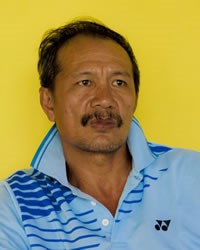Cumbalacu in Indonesia

Photo Source:
Copyrighted © 2026
Anonymous All rights reserved. Used with permission |
Send Joshua Project a map of this people group.
|
| People Name: | Cumbalacu |
| Country: | Indonesia |
| 10/40 Window: | Yes |
| Population: | 2,200 |
| World Population: | 2,200 |
| Primary Language: | Bungku |
| Primary Religion: | Islam |
| Christian Adherents: | 0.00 % |
| Evangelicals: | 0.00 % |
| Scripture: | Translation Started |
| Ministry Resources: | No |
| Jesus Film: | No |
| Audio Recordings: | No |
| People Cluster: | Tukangbesi of Sulawesi |
| Affinity Bloc: | Malay Peoples |
| Progress Level: |
|
Introduction / History
The Culambacu people live in about 25 villages. 24 of these villages are in Wiwirano District, North Konawe Regency in the province of Southeast Sulawesi. They also live in the village of Buleleng, South Bungku District, Morowali Regency in the province of Central Sulawesi. Only a few Culambacu people live in most of these villages. Only in the village of Lamonae in Wiwirano District do they make up almost 80% of the population. The Culambacu people speak the Culambacu language, which is like Bungku.
In the past, the Culambacu had a queen, and her grave is well guarded even up to the present. According to local tradition, the queen of Culambacu was a sister of the kings of Ternate, Bungku, Makassar, Bone and Buton. When they separated, as a sign of family affection, they piled up gold in Tapunoini and marked the location with very tall bamboo (Bambu Batu) which is still there to this day. That is why this group is called Culambacu, which means "tall bamboo."
In the past, Culambacu people who lived in the mountains could only travel by sea. The village of Buleleng in South Sulawesi is an ancient Culambacu sea port, which is the reason many of them live in this village. A road to this area only began to be built 20-30 years ago. Before that, the Culambacu were isolated and only a few people knew anything about them. After the road opened, more outsiders moved to this area and began living in Culambacu villages.
What Are Their Lives Like?
To maintain their language and culture, the Culambacu require their children to speak Culambacu at home and in everyday interactions. As a result, all Culambacu people can speak their language. They also closely guard unity with others within their ethnic group. If one of them is ill, others will be quickly informed, so that everyone in the community can do what they can to help. In the same way, if a conflict arises with another ethnic group or someone outside their group, all Culambacu people (both men and women, young and old) will gather to help.
What Are Their Beliefs?
The Culambacu are Muslim, but they are friendly and open toward people of other tribes and religions. That is one reason so many outsiders have come to live in Culambacu villages and have even become a majority in many of those villages. Many non-Muslims live in Culambacu villages, living peacefully side by side. However, the Culambacu hold strongly to Islam and forbid all members of their group to follow any other religion.
What Are Their Needs?
Although the Culambacu love peace, they also have a principle that they don't want to be bothered. This attitude will make it difficult for gospel workers to be accepted by this completely unreached people group.
Prayer Points
There are probably no Christ followers among the Cumbalacu people; pray for a movement to Christ.
Pray for the Cumbalacu to have the spiritual hunger it takes to allow Jesus Christ to speak into their community.
Pray for loving and dedicated workers to go to them.